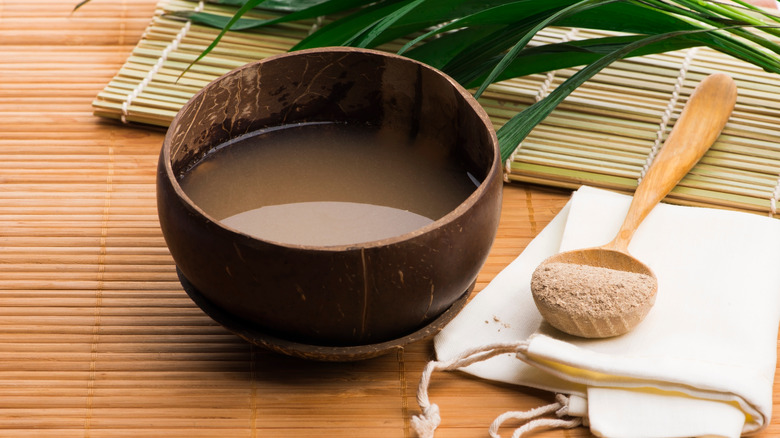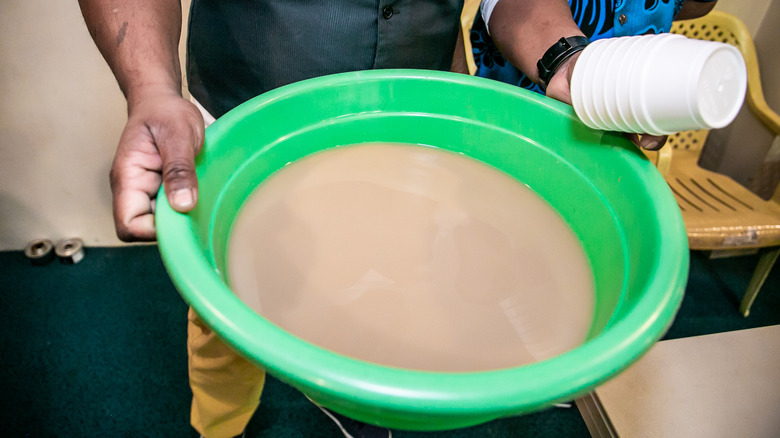Why You May Want To Think Twice Before Drinking Kava
For centuries, Pacific Islanders have been enjoying kava, a tea made from the Piper methysticum shrub that can induce mild euphoria and relaxation (per Alcohol and Drug Foundation). Popular in Fiji, kava is usually served as a brown-colored drink in coconut shells and can be taken as either a shot or sipped as a hot or cold beverage, according to Insider. Kava can also be consumed as an extract, supplement, or powder. Known in Fiji as yaqona or grog, kava first produces a numbing sensation in your mouth and throat before calming your body. Traditionally, kava is consumed in a ceremony-style gathering that can be both formal, such as for a wedding or celebration, or informal with a casual gathering of friends.
Now the drink is making its way to the United States and while it can be tasty, it does come with some side effects. Additionally, kava may not be safe for everyone to drink as it can have negative interactions with several common medications. Before you try kava, here is what you should know.
What to know about kava's safety
Although kava is advertised as a non-alcoholic beverage, it can still impair your ability to operate machinery and drive a motor vehicle (per WebMD). In fact, driving under the influence (DUI) citations have been given when a person has consumed a large quantity of kava and then driven while impaired. The euphoric high that kava produces can be similar to other drugs, particularly narcotics or benzodiazepines, both of which can also cause impaired judgment. You should never mix kava with alcohol.
When it comes to medications, there are several with which kava has negative interactions. According to Mount Sinai, kava can have interactions with supplements, herbs, and prescription medications. In particular, anticonvulsants like phenytoin and anti-anxiety medications including Xanax, Valium, Librium, Ativan, and Halcion should never be mixed with kava as it can increase their effects. Medications that are metabolized through the liver are also not recommended to be combined with it since kava may affect how they are metabolized. Phenothiazine medications like chlorpromazine and promethazine should not be taken with kava since it may increase the risk of side effects. Levodopa should also not be used with kava since it may decrease this medication's effectiveness. Kava can make you dehydrated, so don't take it alongside diuretics or any other substance that increases dehydration. Always drink plenty of water with kava, and speak with your doctor to determine if kava may interact with your medications or any health conditions you have.

